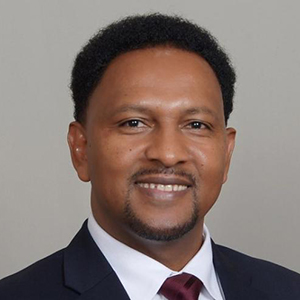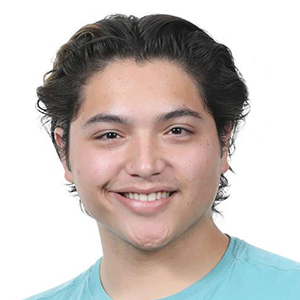PA-24-181: Mentored Clinical Scientist Research Career Development Award (Parent K08 - Independent Clinical Trial Required)
NHGRI supports resources, approaches, and technologies that accelerate genomic research focused on the ethical, legal, and social implications of genomic advances; the structure and biology of genomes; the genomics of disease; the implementation and effectiveness of genomic medicine; computational genomics and data science; and the impact of genomic advances, technology, and implementation on health disparities. Within these areas, approaches that are comprehensive across the genome or are generalizable variants, tissues, diseases, or functions may be in scope for NHGRI.
All K08 applicants must justify the need for additional training and explain how the training will facilitate their ability to conduct cutting-edge research in the research areas outlined above.
Prospective applicants are strongly encouraged to contact the Scientific Program Contact to discuss their concept for this initiative during the development stages of the application.
- Salary Support: Commensurate with the applicant institution's salary structure for persons of equivalent qualifications, experience, and rank.
- Research Support: Up to $40,000 per year. In addition to Research Support, awardees are strongly encouraged to attend at least one NHGRI Research Training and Career Development Annual Meeting while supported on the K08. Travel for the awardee may be requested up to $1500 each per NHGRI meeting.
- Important Dates: Application Due Dates: February 12, June 12, October 12
- Contact Program Officer:
Heather A. Colley, M.S.
Email: heather.colley@nih.gov
PA-24-182: Mentored Clinical Scientist Research Career Development Award (Parent K08 Independent Clinical Trial Not Allowed)
NHGRI supports resources, approaches, and technologies that accelerate genomic research focused on the ethical, legal, and social implications of genomic advances; the structure and biology of genomes; the genomics of disease; the implementation and effectiveness of genomic medicine; computational genomics and data science; and the impact of genomic advances, technology, and implementation on health disparities. Within these areas, approaches that are comprehensive across the genome or are generalizable variants, tissues, diseases, or functions may be in scope for NHGRI.
All K08 applicants must justify the need for additional training and explain how the training will facilitate their ability to conduct cutting-edge research in the research areas outlined above.
Prospective applicants are strongly encouraged to contact the Scientific Program Contact to discuss their concept for this initiative during the development stages of the application.
- Salary Support: Commensurate with the applicant institution's salary structure for persons of equivalent qualifications, experience, and rank.
- Research Support: Up to $40,000 per year. In addition to Research Support, awardees are strongly encouraged to attend at least one NHGRI Research Training and Career Development Annual Meeting while supported on the K08. Travel for the awardee may be requested up to $1500 each per NHGRI meeting.
- Important Dates: Application Due Dates: February 12, June 12, October 12
- Contact Program Officer:
Heather A. Colley, M.S.
Email: heather.colley@nih.gov
PA-24-193: NIH Pathway to Independence Award (Parent K99/R00 Independent Clinical Trial Required)
The purpose of the NIH Pathway to Independence Award (K99/R00) program is to increase and maintain a strong cohort of new and talented, NIH-supported, independent investigators. This program is designed to facilitate a timely transition of outstanding postdoctoral researchers with a research and/or clinical doctorate degree from mentored, postdoctoral research positions to independent, tenure-track or equivalent faculty positions. The program will provide independent NIH research support during this transition in order to help awardees to launch competitive, independent research careers.
NHGRI holds an annual Research Training and Career Development Annual Meeting.
Awardees and their mentors are strongly encouraged to attend. Request travel for the awardee for up to $1,500 per NHGRI meeting.
PA-24-194: NIH Pathway to Independence Award (Parent K99/R00 Independent Clinical Trial Not Allowed)
The purpose of the NIH Pathway to Independence Award (K99/R00) program is to increase and maintain a strong cohort of new and talented, NIH-supported, independent investigators. This program is designed to facilitate a timely transition of outstanding postdoctoral researchers with a research and/or clinical doctorate degree from mentored, postdoctoral research positions to independent, tenure-track or equivalent faculty positions. The program will provide independent NIH research support during this transition in order to help awardees to launch competitive, independent research careers.
NHGRI holds an annual Research Training and Career Development Annual Meeting.
Awardees and their mentors are strongly encouraged to attend. Request travel for the awardee for up to $1,500 per NHGRI meeting.
PA-24-175 - Mentored Research Scientist Development Award (Parent K01 - Independent Clinical Trial Required)
NHGRI supports resources, approaches, and technologies that accelerate genomic research focused on the ethical, legal, and social implications of genomic advances; the structure and biology of genomes; the genomics of disease; the implementation and effectiveness of genomic medicine; computational genomics and data science; and the impact of genomic advances, technology, and implementation on health disparities. Within these areas, approaches that are comprehensive across the genome or are generalizable across variants, tissues, diseases, or functions may be in scope for NHGRI.
All K01 applicants must justify the need for additional training and explain how the training will facilitate their ability to conduct cutting-edge research in the research areas outlined above.
Prospective applicants are strongly encouraged to contact a Scientific Program Contact to discuss their concept for this initiative during the development stages of the application.
- Salary Support: Commensurate with the applicant institution's salary structure for persons of equivalent qualifications, experience, and rank.
- Research Support: Up to $40,000 per year.
In addition to Research Support, awardees and their mentors are strongly encouraged to attend at least one NHGRI Research Training and Career Development Annual Meeting while supported on the K01. Travel for the awardee and mentor may be requested up to $1500 each per NHGRI meeting.
- Important Dates: Application Due Dates: February 12, June 12, October 12
- Contact Program Officer:
Heather A. Colley, M.S.
Email: heather.colley@nih.gov
PA-24-176 - Mentored Research Scientist Development Award (Parent K01 - Independent Clinical Trial Not Allowed)
NHGRI supports resources, approaches, and technologies that accelerate genomic research focused on the ethical, legal, and social implications of genomic advances; the structure and biology of genomes; the genomics of disease; the implementation and effectiveness of genomic medicine; computational genomics and data science; and the impact of genomic advances, technology, and implementation on health disparities. Within these areas, approaches that are comprehensive across the genome or are generalizable across variants, tissues, diseases, or functions may be in scope for NHGRI.
All K01 applicants must justify the need for additional training and explain how the training will facilitate their ability to conduct cutting-edge research in the research areas outlined above.
Prospective applicants are strongly encouraged to contact a Scientific Program Contact to discuss their concept for this initiative during the development stages of the application.
- Salary Support: Commensurate with the applicant institution's salary structure for persons of equivalent qualifications, experience, and rank.
- Research Support: Up to $40,000 per year.
In addition to Research Support, awardees and their mentors are strongly encouraged to attend at least one NHGRI Research Training and Career Development Annual Meeting while supported on the K01. Travel for the awardee and mentor may be requested up to $1500 each per NHGRI meeting.
- Important Dates: February 12, June 12, October 12
- Contact Program Officer:
Heather A. Colley, M.S.
Email: heather.colley@nih.gov
PA-23-261: Ruth L. Kirschstein National Research Service Award (NRSA) Individual Fellowship for Students at Institutions Without NIH-Funded Institutional Predoctoral Dual-Degree Training Programs (Parent F30)
The purpose of the Kirschstein-NRSA, dual-doctoral degree, predoctoral fellowship (F30) is to enhance the integrated research and clinical training of promising predoctoral students, who are matriculated in a combined MD/PhD or other dual-doctoral degree training program (e.g., DO/PhD, DDS/PhD, AuD/PhD, DVM/PhD), and who intend careers as physician/clinician-scientists. Applicants must propose an integrated research and clinical training plan and a dissertation research project in scientific health-related fields relevant to the missions of the participating NIH Institutes and Centers. The fellowship experience is expected to clearly enhance the individual's potential to develop into a productive, independent physician/clinician-scientist.
NHGRI will give funding priority to: (a) applications that focus on genomic sciences and genomic medicine approaches with an emphasis on the quantitative sciences, bioinformatics or technology development, or (b) applications that focus on high priority ELSI issues and provide multidisciplinary conceptual and methodological training, and (c) applicants whose mentor(s) are funded by NHGRI. NHGRI does not support disease-specific research.
NHGRI holds an annual Research Training and Career Development Annual Meeting.
Awardees and their mentors are strongly encouraged to attend. Request travel for the awardee for up to $1,500 per NHGRI meeting.
Important Updates to the NIH Fellowship Applications: Learn more about the changes being made to fellowship application forms and instructions for due dates on or after January 25, 2025.
PA-23-262: Ruth L. Kirschstein National Research Service Award (NRSA) Individual Postdoctoral Fellowship (Parent F32)
The purpose of the Ruth L. Kirschstein National Research Service Award (NRSA) Individual Postdoctoral Fellowship (Parent F32) is to support research training of highly promising postdoctoral candidates who have the potential to become productive, independent investigators in scientific health-related research fields relevant to the missions of the participating NIH Institutes and Centers. Applications are expected to incorporate exceptional mentorship.
NHGRI holds an annual Research Training and Career Development Annual Meeting.
Awardees and their mentors are strongly encouraged to attend. Request travel for the awardee for up to $1,500 per NHGRI meeting.
Important Updates to the NIH Fellowship Applications: Learn more about the changes being made to fellowship application forms and instructions for due dates on or after January 25, 2025.
PA-23-272: Ruth L. Kirschstein National Research Service Award (NRSA) Individual Predoctoral Fellowship (Parent F31)
The purpose of the Ruth L. Kirschstein National Research Service Award (NRSA) Individual Predoctoral Fellowship (Parent F31) award is to enable promising predoctoral students to obtain individualized, mentored research training from outstanding faculty sponsors while conducting dissertation research in scientific health-related fields relevant to the missions of the participating NIH Institutes and Centers. The proposed mentored research training must reflect the candidate’s dissertation research project and is expected to clearly enhance the individual’s potential to develop into a productive, independent research scientist.
- Important Dates: December 08, 2023, April 08, 2024, August 08, 2024, December 08, 2024, April 08, 2025 and August 08, 2025
- Contact Program Officer:
Heather A. Colley, M.S.
Email: heather.colley@nih.gov
Important Updates to the NIH Fellowship Applications: Learn more about the changes being made to fellowship application forms and instructions for due dates on or after January 25, 2025.
PAR-23-109: NIH Medical Scientist Partnership Program (FM1 Clinical Trial Not Allowed)
The purpose of the Medical Scientist Partnership Program (MSPP) is to develop a diverse pool of combined doctoral degree students (e.g., M.D./Ph.D., D.D.S./Ph.D., D.V.M./Ph.D.) who will conduct their Ph.D. dissertation research at research laboratories in the NIH Intramural Research Program. MSPP Scholars will gain experience in the basic, translational, and clinical biomedical sciences to prepare them for leadership positions in biomedical careers.
PAR-24-295: Emerging Global Leader Award (K43 Independent Clinical Trial Required)
This Funding Opportunity Announcement (FOA) is designed specifically for applicants proposing to serve as the lead investigator of an independent clinical trial, a clinical trial feasibility study, or a separate ancillary study to an existing trial, as part of their research and career development. Applicants not planning an independent clinical trial, or proposing to gain research experience in a clinical trial led by another investigator, must apply to companion FOA PAR-17-001.
The purpose of the Fogarty Emerging Global Leader Award is to provide research support and protected time (three to five years) to an early career research scientist from a low- or middle-income country (LMIC) who holds a junior faculty position at an LMIC academic or research institution, as defined by the World Bank, including "low-income," "lower-middle-income," and "upper-middle-income" countries). This intensive, mentored research career development experience is expected to lead to an independently funded research career at the LMIC institution or in another LMIC. This Funding Opportunity Announcement (FOA) invites applications from LMIC scientists from any health-related discipline who propose career development activities and a research project that is relevant to the health priorities of their country under the mentorship of LMIC and U.S. mentors.
PAR-24-296: Emerging Global Leader Award (K43 Independent Clinical Trial Not Allowed)
This Funding Opportunity Announcement (FOA) is designed specifically for applicants proposing research that does not involve leading an independent clinical trial, a clinical trial feasibility study, or an ancillary study to a clinical trial. Applicants to this FOA are permitted to propose research experience in a clinical trial led by a mentor or co-mentor. Applicants proposing a clinical trial or an ancillary clinical trial as lead investigator, should apply to the companion FOA PAR-21-251.
The purpose of the Fogarty Emerging Global Leader Award is to provide research support and protected time (three to five years) to an early career research scientist from a low- or middle-income country (LMIC) who holds a junior faculty position at an LMIC academic or research institution, as defined by the World Bank, including "low-income," "lower-middle-income," and "upper-middle-income" countries). This intensive, mentored research career development experience is expected to lead to an independently funded research career at the LMIC institution or in another LMIC. This Funding Opportunity Announcement (FOA) invites applications from LMIC scientists from any health-related discipline who propose career development activities and a research project that is relevant to the health priorities of their country under the mentorship of LMIC and U.S. mentors.










